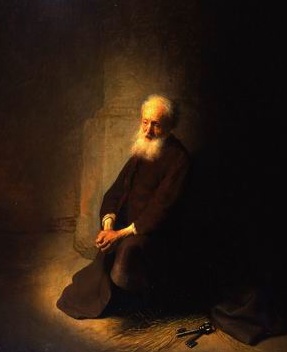 Peter’s message reshaped the Church to expand it to its universal proportions:
Peter’s message reshaped the Church to expand it to its universal proportions:
Acts 10:37 …. you know what happened throughout Judea, beginning from Galilee after the baptism that John announced: 10:38 with respect to Jesus from Nazareth, that God anointed him with the Holy Spirit and with power. He went around doing good and healing all who were oppressed by the devil, because God was with him. 10:39We are witnesses of all the things he did both in Judea and in Jerusalem. They killed him by hanging him on a tree, 10:40 but God raised him up on the third day and caused him to be seen, 10:41 not by all the people, but by us, the witnesses God had already chosen, who ate and drank with him after he rose from the dead. 10:42 He commanded us to preach to the people and to warn them that he is the one appointed by God as judge of the living and the dead. 10:43 About him all the prophets testify, that everyone who believes in him receives forgiveness of sins through his name.”
You could say this passage reflects the earliest “gospel” — and what do we see?

